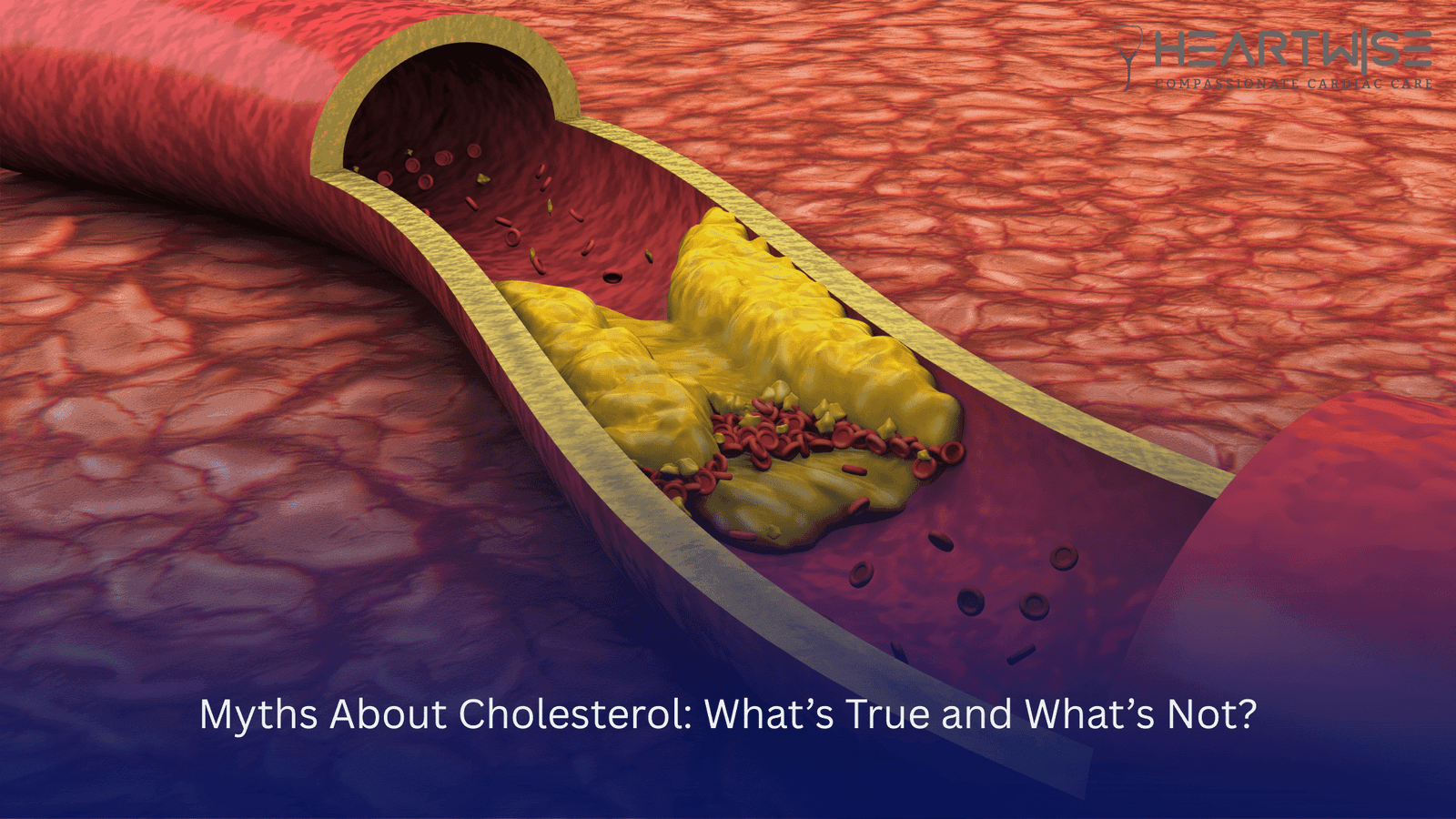Myths About Cholesterol: What’s True and What’s Not?
Cholesterol has long been at the center of discussions around heart health. For years, people have avoided eggs, butter, and even nuts because they feared raising their cholesterol levels. But with the rapid advancement in medical research and a deeper understanding of how our bodies work, many of these beliefs are being challenged. In this comprehensive guide, we will debunk common myths about cholesterol and provide clarity on what truly matters for your heart health.
Understanding Cholesterol: The Basics
Cholesterol is a waxy, fat-like substance that is found in every cell of your body. It plays a vital role in making hormones, vitamin D, and substances that help you digest food. Your liver produces all the cholesterol your body needs, but cholesterol is also found in animal-based foods.
There are two main types of cholesterol:
- LDL (Low-Density Lipoprotein): Often referred to as “bad” cholesterol because high levels can lead to plaque buildup in arteries.
- HDL (High-Density Lipoprotein): Known as “good” cholesterol because it helps remove LDL cholesterol from the bloodstream.
Now, let’s bust some myths!
Myth 1: All Cholesterol is Bad
Truth: Cholesterol is essential for your body to function properly. HDL cholesterol helps remove excess cholesterol and is actually protective against heart disease. The key is maintaining a healthy balance between LDL and HDL cholesterol.
Myth 2: Eating Cholesterol-Rich Foods Increases Blood Cholesterol
Truth: For most people, dietary cholesterol has minimal impact on blood cholesterol levels. Saturated fats and trans fats have a much greater effect on raising LDL cholesterol. Therefore, foods like eggs can be part of a heart-healthy diet.
Myth 3: Thin People Don’t Have High Cholesterol
Truth: Cholesterol levels aren’t always visible. Even people who appear slim can have high cholesterol due to genetics, poor diet, or lack of exercise. Regular testing is important regardless of body size.
Myth 4: Children Don’t Need to Worry About Cholesterol
Truth: Children can also have high cholesterol, especially if they have a family history of heart disease. Poor eating habits and lack of physical activity in childhood can increase future risk.
Myth 5: If My Cholesterol is Normal, I Don’t Need to Worry
Truth: Cholesterol is just one risk factor. High blood pressure, smoking, diabetes, and a sedentary lifestyle also play major roles in heart disease. You must take a holistic approach to heart health.
Myth 6: Medications Are the Only Way to Lower Cholesterol
Truth: While medications like statins can help, lifestyle changes such as a healthy diet, regular exercise, weight loss, and quitting smoking can significantly lower cholesterol naturally.
Myth 7: Fat-Free Foods Are Always Heart-Healthy
Truth: Many fat-free foods are loaded with added sugars, salt, and refined carbs to enhance flavor. These can actually contribute to heart disease. Instead, focus on whole, minimally processed foods.
Myth 8: Only Older Adults Need to Monitor Cholesterol
Truth: High cholesterol can begin in childhood and adolescence. Starting healthy habits early in life can prevent complications later on. The American Heart Association recommends cholesterol checks starting as early as age 20.
Myth 9: Natural Supplements Are Always Safe and Effective
Truth: Not all supplements are regulated or scientifically proven. Some may interact with medications or cause side effects. Always consult your doctor before starting any supplement for cholesterol management.
Myth 10: You Can’t Do Anything If You Have a Family History of High Cholesterol
Truth: Genetics do play a role, but lifestyle choices can make a significant difference. With proper diet, exercise, and regular medical check-ups, even those with a family history can manage cholesterol effectively.
Cholesterol-Friendly Lifestyle Tips
- Eat Heart-Healthy Foods:
- Increase intake of soluble fiber (oats, beans, lentils, fruits)
- Add omega-3 fatty acids (flaxseeds, walnuts, fatty fish)
- Use healthy fats (olive oil, avocado)
- Exercise Regularly:
- Aim for at least 30 minutes of moderate activity 5 days a week
- Activities like walking, cycling, and swimming are excellent
- Quit Smoking:
- Improves HDL levels and overall heart health
- Limit Alcohol:
- If you drink, do so in moderation
- Maintain a Healthy Weight:
- Losing just 5-10% of your body weight can lower LDL cholesterol
- Manage Stress:
- Practice meditation, yoga, or deep breathing exercises
When to See a Doctor
- If you have a family history of heart disease
- If you have high blood pressure, diabetes, or are overweight
- If it’s been more than 5 years since your last cholesterol check
Regular monitoring and professional guidance are crucial to long-term heart health.
Conclusion
Cholesterol is often misunderstood, leading to unnecessary fear and confusion. By separating fact from fiction, you can take informed steps to protect your heart. The key lies in understanding your numbers, making smart lifestyle choices, and consulting healthcare professionals regularly. With the right knowledge and action, maintaining healthy cholesterol levels is entirely achievable.

